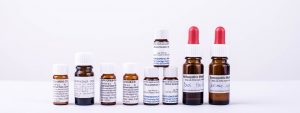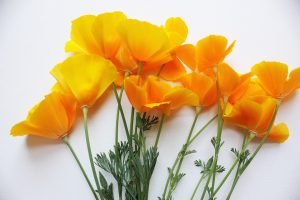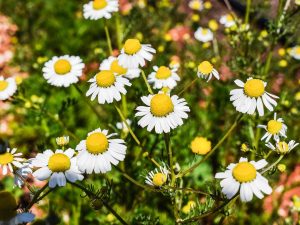 If you’re suffering from insomnia and are trying to avoid prescription sleep medication, here’s a roundup of all the natural sleep remedies that I can find. I’ve put them all in one place for ease of reference. I’ll be posting more in-depth reviews of the ones I’ve tried in the next few days, so be sure to look out for those.
If you’re suffering from insomnia and are trying to avoid prescription sleep medication, here’s a roundup of all the natural sleep remedies that I can find. I’ve put them all in one place for ease of reference. I’ll be posting more in-depth reviews of the ones I’ve tried in the next few days, so be sure to look out for those.
Also, check out my new article series on How I Overcame Insomnia in 10 Steps which details exactly how I broke my bad sleeping habit and got back on track.
Bear in mind that different people react differently to different natural remedies. What works for you may not work for someone else, and vice versa. Try to address other aspects of your sleep hygiene in addition to taking natural sleep remedies – try not to nap during the day, for example, and limit your use of tablets or mobile phones an hour or two before you go to bed.
You should always speak to your doctor before trying a new supplement or herbal remedy.
Natural Non-Herbal Supplements
Melatonin
Melatonin is the hormone in humans which promotes sleep. It is regulated by the hypothalamus in the brain in a 24-hour cycle known as the Circadian Clock. The production of melatonin usually increases in the evening, peaks in the middle of the night, and decreases again in the early morning. Melatonin supplements are available over the counter in health food shops and can be used to treat insomnia, circadian rhythm sleep disorders, jet lag, shift work sleep problems, SAD (seasonal affective disorder) and cluster headaches.
The key to taking melatonin is dosage and timing. You may need to experiment a little before you find the right dose and timing, but most guides will tell you to take it an hour before bed time. Side effects can include drowsiness (!), low body temperature, feeling groggy in the morning, vivid dreams.
Melatonin is not sold over the counter in the UK. This is because it is considered a prescription drug. You may be able to find it online at non-UK websites.
Magnesium
Magnesium is a commonly occurring natural mineral found in many of our foods, and is essential for health. Magnesium supplements are beneficial to everyone since it supports general health and works alongside Calcium and Vitamin D in strengthening bones, but it also helps to relax the nervous system and is often used alongside other supplements to help with insomnia.
See this article on Vitamins and Minerals for more detailed information about supplements.
I take a Calcium and Magnesium supplement daily to help with sleep, and I’ve been genuinely surprised in the past year I’ve been taking them how much they have positively affected my insomnia. They are not a quick fix, but over time your sleep will improve.
5-HTP
5-HTP is a naturally occurring chemical which is a precursor of serotonin, and increases the production of serotonin in the brain. So far studies have shown it to be beneficial for treating depression, and there is anecdotal evidence that it could help with insomnia as well, however not enough studies have been undertaken to prove this. Side effects can include vomiting, diarrhoea, heartburn, stomach pain, and muscle spasms.
You can find a 5-HTP supplement here.
Herbs – Stronger Sedative Insomnia Remedies
Valerian
(tea, tincture or capsules)
This is the most common herbal remedy used to treat insomnia and sleep disruption, as well as anxiety. The herb smells and tastes like stinky feet, so try to get the capsules if you can, however the tincture is much more powerful. Some people report building up a tolerance to the herb after a few weeks. A minority of people find that valerian worsens their insomnia, if this happens to you, discontinue use and try another one of these herbs.
Here’s a good Valerian Root supplement. I prefer the capsules since I don’t like the taste of the tea.

California Poppy Sleep Remedy
California Poppy
(tea or tincture)
Another good herb for sleeplessness, restlessness and anxiety, also for digestive problems. Safe for children.
Try a California Poppy tincture.
Magnolia Bark
(capsules)
Promotes drowsiness by lowering cortisol levels. Not suitable for babies or pregnant/nursing women.
Magnolia Bark supplements are available here.
Passion flower
(tea or tincture)
Helps to prevent waking during the night. Does not cause grogginess in the mornings. Safe for children, and can be taken in large doses and over long periods.
Passion flower is available as a Tincture and also as a Passion Flower Extract tablet.
Hops
(tea or tincture)
Fast acting sedative for insomnia, anxiety, digestive problems and sleep disruptions. Not suitable for children under 2 or pregnant women. Hops pillows can also be used to help insomnia.
Hops also works best in a tincture.
St John’s Wort
(tincture or capsules)
Can relieve chronic insomnia and mild depression. Increases sensitivity to light. Can interact with some prescription medications, check with a doctor before using.
St John’s Wort is widely available as a capsule.
Herbs – Mild and Calming Remedies
Wild Lettuce
(tincture)
Calming, gentle relief of nervousness, restlessness and anxiety. Safe for children. Try Wild Lettuce Tincture.
Catnip
(tea or tincture)
Gentle anxiety relief. Related to Valerian, so acts in a similar way. Not just for cats! Just make sure you find an extract or tincture intended for human use.

Chamomile Remedy
Chamomile
(tea or tincture)
Gentle relief for insomnia, anxiety, restlessness and digestive problems. Safe for children.
Chamomile tea is widely available in supermarkets as it is one of the most popular and well known herbal teas. I love Pukka brand Chamomile tea.
Kava kava
(tea, tincture or capsules)
Kava kava can be taken as a tea or tincture, or in capsules. It has a similar drowsy effect to alcohol.
A word of warning though, it can affect your liver if taken too often, so people with liver disease should avoid it. It has now been banned in the UK:
https://www.gov.uk/government/publications/list-of-banned-or-restricted-herbal-ingredients-for-medicinal-use/banned-and-restricted-herbal-ingredients
Since Kava kava tea is no longer available, you could substitute Ashwagandha (see below) which is similar.
Ashwagandha
(Tea, tincture or capsules)
Ayurvedic herb. Not a sedative, but relaxes and energises the mind. Lowers cortisol levels. Safe for children. Interacts with some prescription sedatives and antidespressants, so check with your doctor before you take it.
Not everyone loves the flavour taken as a tea, but ashwagandha capsules are widely available.
Lavender
(essential oil, inhaled)
Works best as aromatherapy, use drops of the essential oil in the bath, on your pillow, or in an essential oil burner or diffuser. Lavender pillows can also be used.
Some people love lavender, others hate it. But if you like it, it’s a great scent for helping you unwind and relax. Try this Lavender Essential Oil. I use this one in my diffuser regularly.
Skullcap
(Tea or tincture)
Gentle sedative, promotes relaxation. Skullcap Tincture is available here.
Teas
An herbal tea is made simply by steeping the dried herbs in boiling water for a few minutes, then straining and drinking. Some herbs use the roots of a plant, such as valerian, which need to be boiled on the stove for around 15 minutes rather than just steeped, to release all the active compounds from the woody root. Others using the leaves or flowers can be steeped for less time.
Teas can be made in bulk in large containers, and stored in the refrigerator for up to three days. You can drink teas plain, or sweetened with honey or stevia, or with milk/non-dairy milk.
Tinctures
These herbs can be grouped together in a tincture to take advantage of their slight differences in actions. For example, skullcap, chamomile and catnip make a gentle, calming tea suitable for settling the nerves during the day. While a tincture made from valerian, California poppy, hops and passion flower is a stronger sedative to promote drowsiness at bed time and deeper sleep.
Making tinctures takes a while but is very easy and rewarding to do, since you can pick and choose the herbs that suit you and exclude those you don’t like. However, if you prefer to buy ready-made tinctures, check the ingredients before purchasing. Many of the ‘herbal’ products sold in the big name health food shops such as Holland & Barrett contain low strength popular herbs like lavender and chamomile, but there are a few better quality ones with stronger herbs selected by real herbalists.
If there is interest in herbal teas and tinctures I’ll put up some recipes and tutorials for how to make them. I’ve made a few tinctures, creams and balms over the years and would like to share my recipes.
Disclaimer: I’m not a doctor, nor do I claim to be. Check with a doctor before taking any herbal supplements as some of them can interact with prescription medications.

 If you’re suffering from insomnia and are trying to avoid prescription sleep medication, here’s a roundup of all the natural sleep remedies that I can find. I’ve put them all in one place for ease of reference. I’ll be posting more in-depth reviews of the ones I’ve tried in the next few days, so be sure to look out for those.
If you’re suffering from insomnia and are trying to avoid prescription sleep medication, here’s a roundup of all the natural sleep remedies that I can find. I’ve put them all in one place for ease of reference. I’ll be posting more in-depth reviews of the ones I’ve tried in the next few days, so be sure to look out for those.

